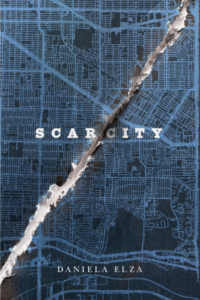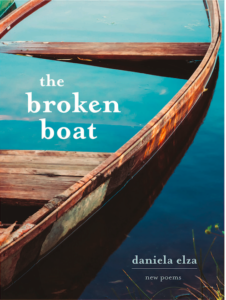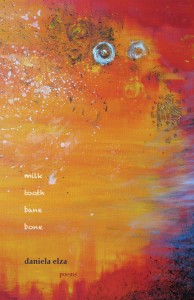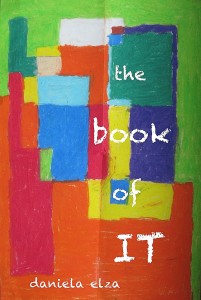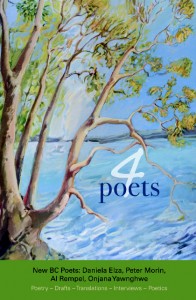the cleavage (of writer and text
Posted by Daniela Elza on Sep 17 2008
As I continue on my journey through Margaret Atwood’s Negotiating with the Dead, I am intrigued by a question she poses: “How is the writer to determine his or her position in relation to humanity?”
I wonder if you can, without outside points of reference?
When writing here on this blog I have not idea, if, when, and who is reading my words. I have no idea how relevant to them they are. All I know is these are the spaces I dwell in. These are the letters to the world that I write. And unlike Emily Dickinson, who said in a poem the world never wrote back to her, I can actually say that the world sometimes writes back. Whether it is visible through this blog, or through email, or in person, I hear back from the world. And this world is not an echo chamber where I just hear the reverberations of my own voice. It is a thinking, feeling, courageous world that shares my sentiments, or if not my sentiments at least shares my passion.
Technology, in many ways has made Dickinson’s line, This is my letter to the world possible. Any one who puts their thoughts out there, is writing a letter to a world. When you put them on the world wide web it is the world. Literally. It is a strange feeling. Almost as strange and scary, and at the same time exhilarating, as when I would speak into the darkness of my grandmothers ground well (which she kept most of the time shut in the fear we will disappear into its blackness). Now when I think of it, this well metaphor is quite appropriate in conveying the conflicting feelings of fear and excitement that writing to the world invokes. (Hmmm… anything coming back from the well at the time other than my own echo, would have spooked me witless). This metaphor still works here (now to my surprise) because in the early phases of my life I could not have imagined a reader to what I was writing. It was all writing by me and for me.
The writing I now do is my way of being in the world, a need. It is also a kind of discipline. It will not sustain if you are not serious about it. Whether posted here, or in a journal, or in a book, anthology, or magazine, it is a testimony for my dedication to life, breath, and writing. It is a way of knowing and finding out. Is it significant? Is it relevant? Is it enjoyable? Is it entertaining? Is it. . .
Well, my answer is yes, but only as far as I am concerned. The rest is unknown to me. Unless. . . the world writes back.
Atwood says:
“An art of any kind is a discipline; not only a craft—that too—but a discipline in the religious sense, in which the vigil of waiting, the creation of a receptive spiritual emptiness, and the denial of self all play their part.”
There is that tricky “denial of self” idea again. I am not sure what she means here by “religious” and I hope that word does not hijack the quote, but in any case this is not an easy task. What in the rushed, noisy, full of mental and material clutter, individualistic world we live in would actually allow for practicing such discipline? Yet, discipline is a lot of what our life is about. Just think of what a big part discipline plays at home and at school? Can we think of discipline in ways other than punishment, or unpleasant tasks?
And ultimately, who cares, in such a busy world, who will have time to listen, to read, to respond.
It takes quite a bit of commitment and energy to be able to carry on with this discipline. And despite the fact that it is self-motivated, and self-driven, as most good discipline is, it is also enhanced and furthered by the resonances, responses that trickle back in one form or another from the darkness of that well. Which becomes lighter with each engaging, each speaking up, and down, and back.
“The secret is that it is not the writer who decides whether or not his work is relevant. Instead it is the reader.” This is Atwood’s answer.
And I will add that the reader in turn becomes the creator, or shall we say re-creator in the moment of reading. The reader is the one who breathes life into the words, and partly because of that we can not speak of morally or socially neutral writing. Or of a fixed meaning to a fixed text. Thank goodness.
